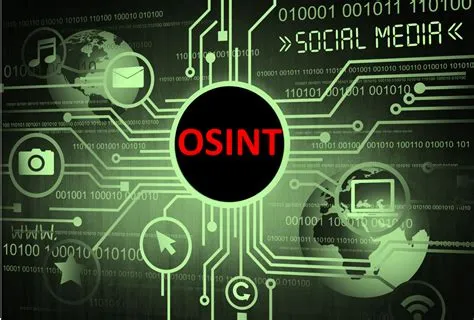Embracing Artificial Intelligence: A Game-Changer for Modern Businesses
Embracing AI: A Game-Changer for Modern Businesses
Over the past few years, Artificial Intelligence (AI) has been changing the shape of the business world and reshaping the stance of the modern enterprise. Thanks to Major Tech breakthroughs in AI and Machine Learning, enterprises can now streamline their operations, improve the overall end-user experience, and outpace the market, no matter what industry. This article looks at some of the latest AI trends, its impact on the business world, and why hiring an AI software development company or simply an app developer is a must if you want to stay ahead of the curve.
Unpacking Artificial Intelligence and Machine Learning
What is Artificial Intelligence?
Artificial intelligence (AI) is the theory and development of computer systems able to perform tasks that are usually regarded as being best done by ‘intelligent’ humans, such as learning, reasoning, problem-solving and understanding language. These systems are designed to be able to understand and respond to new information.
The Role of Machine Learning
Within AI lie various subsections of emerging technology, including machine learning (ML), a type of AI that allows algorithms (sets of complex instructions) and statistical models to ‘learn’ by identifying patterns in data, and then make predictions accordingly. This differs from traditional programming where researchers establish processes for machines to follow for the purpose of completing specific tasks.
Current Trends in Artificial Intelligence
1. AI in Healthcare
AI is revolutionising healthcare, helping to diagnose illnesses, .by using Machine Learning to identify patterns in vast amounts of medical data. Early diagnosis, personalised care, and treatment can be made possible through the process of algorithmically discovering statistical patterns of disease and illness and making them accessible.
Real-life Example
IBM Watson Health applies AI to text in medical literature and patient data to help doctors make more accurate diagnoses and treatment decisions.
2. AI in Finance
For instance, the finance sector is using AI for fraud detection, risk assessment, algorithmic trading and personalised financial services. Machine Learning models use transaction data to spot unusual patterns that could be indicative of fraudulent activities, allowing us to stay one step ahead and keep our funds more secure.
Real-life Example
And the company JPMorgan Chase uses AI to go through legal documents, extracting information to create a summary, speeds up and automates the process of document review.
3. AI in Retail
Deployments of AI allow retailers to better tailor their customers’ experience, optimise supply chains and distribute inventories intelligently. With recommendation engines powered by AI, retailers can facilitate more personalised shopping for their clients. And predictive analytics can help to anticipate demand, refining their operations by utilising big data.
Real-life Example
Whether scholar or consumer, Amazon’s recommendation engine uses artificial intelligence to pinpoint things that we’d enjoy based on our browsing history and unthinking impulses, happily lining both our heads and our carts with intellectual treats.
4. AI in Manufacturing
Predictive modelling assesses data about similar past equipment failures and advises on the maintenance schedule These two pie charts show how many manufacturing companies are using AI to ensure that the products are of a high quality, and how AI has been applied and its use in manufacturing.According to the charts, AI enable companies to predict when their equipment will break down and when they should carry out maintenance. This decreases the amount of downtime in their production processes.A total of 12, 16 and 3% of respondents from Australia, Europe and the USA respectively said they use predictive maintenance to help them plan when it is needed. Predictive modelling assesses data about similar past equipment failures and advises on the maintenance schedule. About 20% of people in Australia and Europe but 50% in the USA say that AI helps with these maintenance operations.This is essential as predictive models suggest several days of notice before equipment failures. Areas for future development include improving the accuracy of software using Machine Learning, which trains an algorithm to carry out a task by providing input that provides an output with the desired result. Researchers refer to more training data as a better teacher.
Real-life Example
General Electric, for example, leverages AI to monitor industrial machines, predict maintenance requirements and optimise operations, saving costs and improving efficiency.
5. AI in Autonomous Vehicles
Self-driving cars, another popular example of an AI application, use artificial intelligence, sensors and algorithms to drive by interacting with their surroundings in real time, making them safer and more efficient.
Real-life Example
Tesla’s Autopilot uses AI to enable semi-autonomous self-driving features, such as lane-keeping and adaptive cruise control, which also applies the brakes to avoid collisions with lower-priority vehicles, and self-parking.
Benefits of Partnering with an AI Software Development Company
Specialized Expertise
Having such knowledge and experience, AI software development companies are capable to creating a special solution that fits AI into a specific problem and configures all other aspects of the system.
Cost Efficiency
As compared to developing AI solutions in-house, partnering with an AI software development can ensure more cost-effectiveness in terms of money and time due to an access to the latest technologies and highly proficient professionals. Partnering with an AI software development company offers a better alternative to developing AI solutions in-house due to the fact that an ability to provide innovative solutions to crucial business challenges lies at the core of a company.
Accelerated Development
AI software-development companies also make development faster, getting AI solutions to the market quicker, and therefore allowing businesses to react more quickly to market changes. They need to stay competitive.
Customization and Scalability
This often also extends to custom solutions, tailored to a particular business’s needs, and for ensuring scalability, so that the AI system can develop with the business over time. Examples of AI software development companies include revolvy.com and Articulate, aka Articulate Global Inc.
Real-life Example
We are a company that helps businesses implement the solutions they need to become the driver of innovation and growth through AI and Machine Learning. Kodexo Labs helps corporations, government agencies and organisations to embrace the change through our nearshore technical teams and AI solutions.
The Importance of Hiring an App Developer for AI Integration
Seamless Integration
It is therefore crucial to hire app developer with AI skills so that the resulting AI app integrates the AI deep learning technologies into the app in a way that will best serve the app and the user.
Enhanced User Experience
These kinds of apps bring users specific functionalities as per their interests. Depending upon the apps, users have different kinds of interactions. For example, photography apps auto-adjust pictures based on analysis of their properties. This improves the user’s interaction by reducing manual editing requirements. Chen et. al proposed a way to enhance user’s engagement and satisfaction by using AI support for apps. Their approach allows developers to add specific AI support to apps. These include chatbots, recommendation engines, and prediction engines that improve the app’s performance based upon users’ interaction patterns and the users’ preferences.
Competitive Advantage
Adding AI into apps distinctively sets the shortcomings of those apps apart from those IT rival products when it comes to functions, contributes to widening the gap of the profit, or to some extent, fills in the blanks based on the products.
Real-life Example
As a result, the retail firm that hired the app developer – which integrated AI features that advised customers about shopping–increased user engagement levels and sales.
The Future of AI: Challenges and Opportunities
Ethical Considerations
Nevertheless, the ethical pendulum must swing a bit further as AI gets even better at solving problems. How can we limit negative consequences such as increased surveillance (to the detriment of privacy) and perpetuation of discriminatory behaviour (bias), and participation in a labour force that’s dominated by intelligent machines? Instances of bias or discrimination in AI development bode darkly for algorithms deployed more broadly. Furthermore, many fear that, in time, AI-powered work bots will decimate human jobs. Cultural and economic issues aside, if AI-powered systems behaved unfairly, or kept people in the dark about what they were doing, the general public might end up mistrusting – even demonising – artificial intelligence.
Data Security
In light of the important role of data in AI, the confidentiality, integrity and accessibility of data must be prioritized. Specifically, suitable security safeguards need to be put into effect by businesses, preventing the theft or mishandling of data as well as fraud or malicious attacks in the global context.
Continuous Learning and Adaptation
What this means is that AI systems must be allowed to constantly re-learn and re-adapt in order to be effective. Organisations must invest in future training and updates to maintain an AI solution’s relevance and efficiency.
Real-life Example
Google’s AI ethics team, for example, works to mitigate ethical concerns, including ensuring the development of ‘fair’ and unbiased AI.
Conclusion
Businesses today can absolutely benefit from AI and Machine Learning More and more businesses are making use of AI, and with great success. Artificial Intelligence is transformational in the sense that it opens boundless opportunities for innovation and growth in a way that was hard to arived before. If driven smartly, it can enable companies to stand out from their competitors, optimise processes and deliver excellent experiences to their clients. For businesses that are just embarking on their AI journey, this decisive move can be undertaken with the involvement of an AI software development company or hiring an app developer specialised in AI solutions.
And that’s where the organisations we work with retain expert partnerships, and monitor AI trends, in order to settle on the correct approach. Because from our experience, it’s apparent that, as long as businesses are paying attention, AI holds the power to deliver transformative change on an even greater scale than we’ve yet seen – the opportunities are limitless.
click here : appfordown





